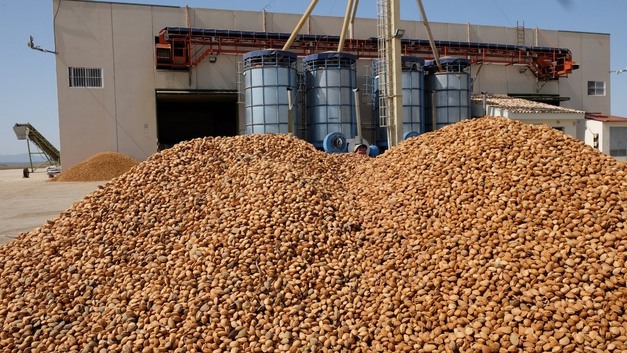The Federation of Agricultural Cooperatives of Murcia (Fecoam) expressed concerns about the sustainability of farms in the nut sector, given the recent trade agreement between the European Union and the United States.
Many details still need to be clarified, but the basic elements of the known agreement cause "great concern" among producers not only in the Region of Murcia but also across Spain, stated Pedro Guerrero, Fecoam's sector manager.
 © Fecoam
© Fecoam
Under the agreement reached, Spanish almonds will face a 15% tariff when entering the North American market. At the same time, imports of American nuts and other products worth approximately €650,000 million will be liberalized. "This commercial liberalization seriously endangers our farms, our industry, and our food sovereignty," Guerrero stated.
The head of the nut sector explains that the United States is the world's largest almond producer, using intensive methods without the phytosanitary restrictions that European producers face. In contrast, European regulations, combined with this new agreement, "not only make competition unfair and unequal" but are also "a real attack on our farms and farmers."
Massive imports
According to Guerrero, due to the fear of tariffs, commercial operators have stocked up on large quantities of American almonds during the almond season, flooding the market with massive imports at low prices.
Spanish almonds, especially those from the Region of Murcia, "have unique characteristics" with high nutritional value. However, under these conditions, Spanish almonds, mostly grown outdoors and often organic, "have no chance of competing."
"We need to fight so the EU doesn't lose its food sovereignty by letting in products from third countries that do not comply with the strict standards we must follow, with the consequent loss of competitiveness that entails," Guerrero stressed.
"By allowing this type of product to enter the EU, European policies are not protecting the Spanish nor the European nut sectors," he added.
For more information:
Fecoam
Tel: +34 627 309 416
Email: [email protected]
